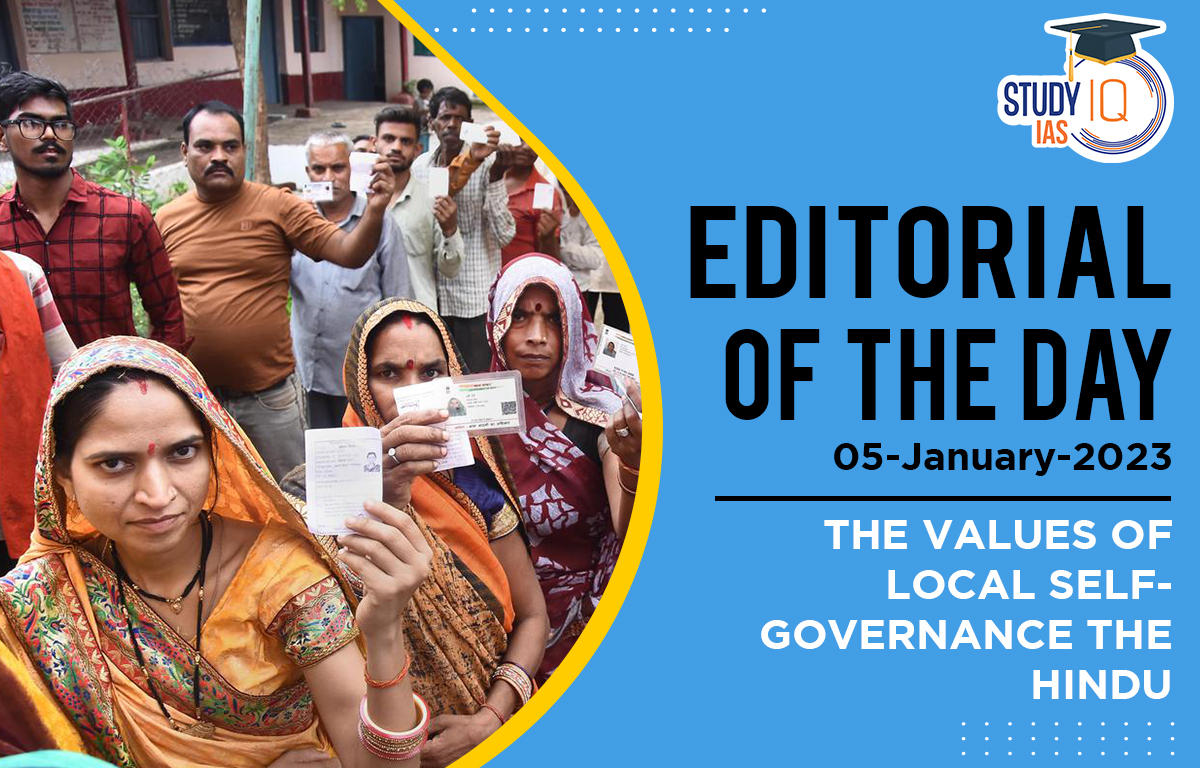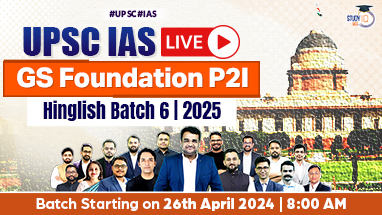Table of Contents
Exam View: Panchayati Raj Institutions, Municipalities, 73rd and 74th Constitutional Amendments, Democratic Decentralisation in India.
In News: In order to promote democratic decentralisation in India, the 73rd and 74th constitutional amendment Acts were approved approximately 30 years ago, but little actual progress has been accomplished since then.
- Local Self Government is the management of local affairs by such local bodies that have been elected by the local people.
- The local government system has obtained constitutional status through the 73rd and 74th constitutional amendments. It established panchayats and municipalities, assigned certain rights and obligations to them, and held them accountable to the people.
- India has progressed from being representationally sparse to one of the most intense democratic participatory systems envisaged.
Constitutional Provisions Related to Local Self-Governance in India
- Under the state subject: Local government, including panchayats, is a state subject in the Constitution, and consequently, the devolution of power and authority to panchayats has been left to the discretion of states.
- Part IX and Part IX A of the Indian constitution: The 73rd and 74th amendments added two new parts to the Constitution, namely, Part IX – “The Panchayats” and Part IX A-“The Municipalities”.
- The Constitution mandates that the Panchayats and municipalities shall be elected every five years and it enjoins States to devolve functions and responsibilities to them through law.
- 11th Schedule: It contains the powers, authority and responsibilities of Panchayats.
- 12th Schedule: It contains the powers, authority and responsibilities of Municipalities.
- Article 40 of DPSP: Organization of a village panchayat
Significant Achievements of the Local Self-Governance in India
- Inculcate a habit of democratic participation: At the local level, it is possible for the people to directly participate in decision-making.
- Increased Representation of Women: The proportion of elected women representatives has been steadily rising since the enactment of the 73rd Amendment Act.
- Currently, India has 260,512 Panchayats with 3.1 million elected representatives, of which a record 1.3 million are women.
- While there is merely 7–8% representation in Parliament and State Assemblies for women, an astounding 49% of elected local representatives are women.

- Strengthen Democracy: Constitutional status for local government has helped to strengthen democracy in the country. There is no uniformity in local bodies across the country.
- Encouraged healthy competition between different states: The passage of the 73rd and 74th Amendments has created healthy competition among various states. Ex: Rajasthan took inspiration from Kerala to devolve many key departments such as health, education, women, and agriculture to PRIs.

Way Forward
- Effective linkages between community, governmental and other developmental agencies: The need of the hour is to bring about a holistic change in the lives of beneficiaries among the villagers by uplifting their socioeconomic and health status through effective linkages through community, governmental and other developmental agencies.
- Funding: The Ministry of Panchayati Raj should monitor the release and expenditure of Finance Commission grants to ensure that there is no delay in their release.
- Government should take remedial action in the interest of democracy, social inclusion and cooperative federalism.
- Comprehensive Mechanism for Taxation: Devise a comprehensive mechanism for taxation at the local levels. Without local taxation, Gram Panchayats cannot be held accountable.
- Focus on decentralisation: People’s demands for sustainable decentralisation and advocacy should focus on a decentralisation agenda. The framework needs to be evolved to accommodate the demand for decentralisation.
- Strengthening sufficient manpower: Serious efforts should be made towards recruitment and appointment of support and technical staff to ensure the smooth functioning of panchayats.
- It is important to have clarity in the assignment of functions and the local governments should have clear and independent sources of finance.


 Current Affairs 26th April 2024 for UPSC...
Current Affairs 26th April 2024 for UPSC...
 Editorial of the day (26th Apr): Reality...
Editorial of the day (26th Apr): Reality...
 India And G7, India has Received Invitat...
India And G7, India has Received Invitat...

















